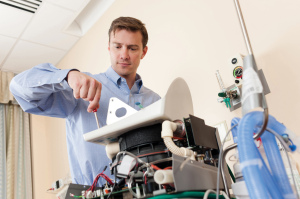by
John R. Fischer, Senior Reporter | August 15, 2022
From the August 2022 issue of HealthCare Business News magazine
Under cost pressure, providers today are weighing their options when it comes to servicing their medical equipment. Increasingly, the one-size-fits-all approach to maintenance is being displaced by a more customized approach based on specific needs. For non-OEM servicers, whether they be independent service organizations (ISOs) or multivendor service (MVS) organizations, this trend creates an opportunity to stand out from the fray.
While original equipment manufacturers (OEMs) can generally maintain and repair their own equipment, the cost of their services, along with the need to maintain solutions from multiple vendors, may push healthcare practices toward third-party providers for their servicing needs. In some cases, the OEM may have stopped offering service on a piece of equipment, making third-party service the only option.
ISOs typically support equipment from one or more manufacturers at lower prices, many of the best ones have field service engineers with experience and skills comparable to the manufacturer for certain modalities, and some even offer training to hospital in-house teams. MVS organizations offer similar services, but have the backing of one of the other equipment manufacturers.



Ad Statistics
Times Displayed: 2157
Times Visited: 29 Keep biomedical devices ready to go, so care teams can be ready to care for patients. GE HealthCare’s ReadySee™ helps overcome frustrations due to lack of network and device visibility, manual troubleshooting, and downtime.
"Quick fix or support (traditional service) will still be a foundational element, but the reality is that the preferred service providers in the future will offer more flexible solutions,” Aaron Goryl, vice president of GE Healthcare strategic service solutions, told HCB News. “They will always consider the user’s need and desired outcomes before and after they may purchase equipment and services.”
What to look for in a non-OEM service partner
Providers must convey clearly what they are seeking in a service agreement to get one well-tailored to their needs. This means recognizing their current requirements, as well as their long-term objectives. While certain problems may be beyond their expertise, ISOs possess certain advantages over manufacturers.
Altima Diagnostic Imaging Solutions, based in Dallas, Texas, services Siemens MR and CT scanners, offering parts repair and replacement, installations and deinstallations, magnet quench support, and site planning. CEO and president Larry Knight says the company’s relatively small size gives it more flexibility to customize agreements and provide support where it is most needed. “Facilities may already have agreements in place for cryo components, helium, or chiller service, which allows us to scale those agreements even more by excluding already covered components,” he said.

